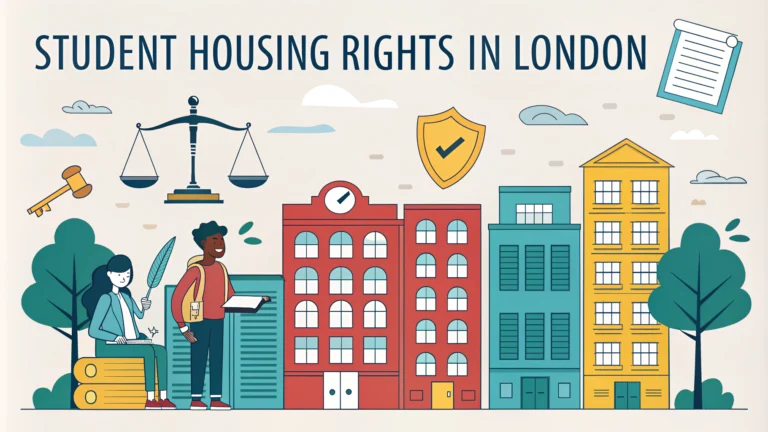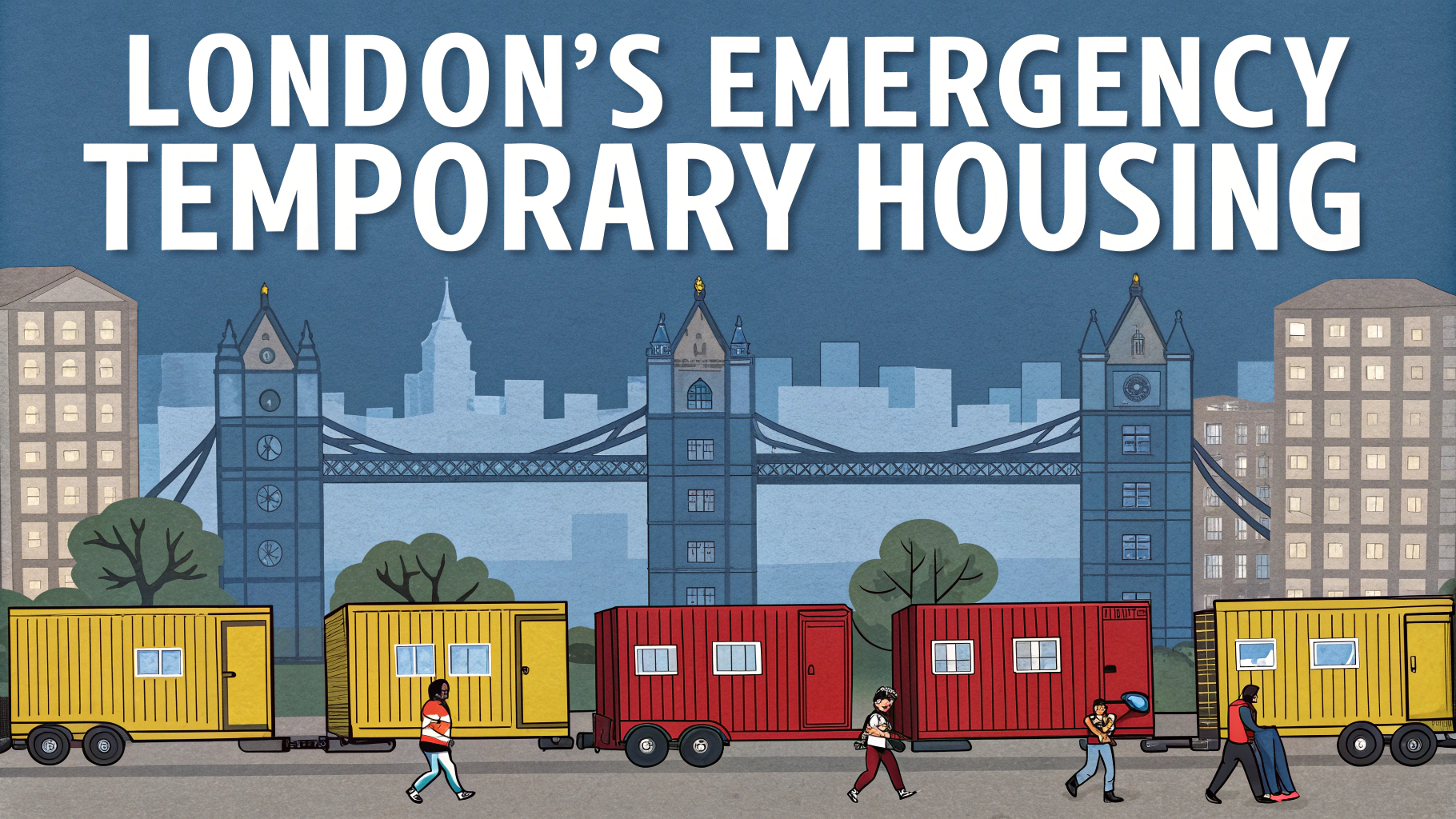Student housing in London presents unique challenges and opportunities for those pursuing education in one of the world’s most dynamic cities.
Understanding your rights as a student tenant helps protect you from unfair practices and ensures you get the most value from your accommodation investment.
This guide outlines essential student housing rights, common issues, and practical solutions for navigating London’s student housing landscape.
Legal Rights as a Student Tenant
- Right to a written contract
- Protection of deposit through government-approved schemes
- Living in a property that meets safety standards
- 24-hour notice before landlord visits
- Protection from unfair eviction
Key Documents You Need
Every student tenant should receive these essential documents:
- Tenancy agreement
- Energy Performance Certificate (EPC)
- Gas Safety Certificate
- Deposit protection certificate
- How to Rent guide
Deposit Protection
Landlords must protect deposits in one of these government-approved schemes:
- Deposit Protection Service (DPS): 0330 303 0030
- MyDeposits: 0333 321 9401
- Tenancy Deposit Scheme (TDS): 0300 037 1000
Maintenance and Repairs
Students have the right to prompt repairs for:
- Structural issues
- Heating and hot water systems
- Gas appliances
- Electrical systems
- Water and drainage
Where to Get Help
These organizations offer free advice and support:
- Shelter: 0808 800 4444
- Citizens Advice: 0800 144 8848
- Your university’s housing service
- London Student Housing Guide: www.london.gov.uk/students
Common Issues and Solutions
| Issue | Solution |
|---|---|
| Delayed repairs | Document issues, contact university housing service |
| Deposit disputes | Contact deposit protection scheme |
| Unfair charges | Review tenancy agreement, seek advice from Citizens Advice |
Student Housing Options
- University halls: Managed by universities, often first-year priority
- Private halls: Purpose-built student accommodation
- Private rentals: Houses or flats shared with other students
- Homestays: Living with a local family
Next Steps for Housing Success
Take these actions to protect your rights:
- Read your contract thoroughly before signing
- Document the property condition with photos
- Keep copies of all correspondence
- Join your student union for additional support
- Save emergency contact numbers
Financial Planning for Student Housing
Understanding the full cost of student accommodation helps with better financial planning:
- Monthly rent payments
- Utility bills and council tax exemption
- Contents insurance
- Transportation costs to university
- Additional fees and charges
Safety and Security Measures
- Working smoke and carbon monoxide alarms
- Secure doors and windows
- Emergency exits
- Fire-resistant furniture
- Adequate lighting in common areas
Moving In and Out Checklist
Moving In
- Complete inventory check
- Take dated photographs
- Record meter readings
- Set up utility accounts
- Register for council tax exemption
Moving Out
- Give proper notice
- Clean thoroughly
- Take final meter readings
- Return all keys
- Request deposit return
Building a Successful Student Housing Experience
Student housing success depends on understanding your rights, maintaining clear communication with landlords, and taking proactive steps to protect yourself. Keep all documentation organized, stay informed about your rights, and don’t hesitate to seek help when needed. Your housing experience significantly impacts your academic journey – make it count by being prepared and informed.
- Stay informed about your rights
- Maintain professional relationships
- Keep detailed records
- Build a support network
- Plan ahead for future housing needs
FAQs
- What are the basic rights of student tenants in London?
Students have the right to a written contract, protection of deposits in a government-approved scheme, living in a property that’s safe and in good repair, protection from unlawful eviction, and the right to quiet enjoyment of their accommodation. - How much notice must a landlord give students to vacate in London?
Landlords must provide at least 2 months’ notice through a Section 21 notice for assured shorthold tenancies, and cannot evict during the fixed term unless there’s a breach of contract. - Can international students rent accommodation in London?
Yes, international students can rent in London. They typically need to provide proof of student status, passport, visa, references, and may require a UK-based guarantor or need to pay several months’ rent in advance. - What is the average cost of student accommodation in London?
Purpose-built student accommodation typically ranges from £200-£400 per week in central London, while shared houses in outer zones can cost £150-£250 per week per person. - Are students exempt from paying Council Tax in London?
Full-time students are exempt from Council Tax, but must provide their university enrollment certificate to the local council to claim the exemption. - What documentation do I need to rent student accommodation in London?
Students typically need proof of identity, student status, proof of address, bank statements, references from previous landlords, and either a UK guarantor or proof of ability to pay rent. - Can student tenants make alterations to their rented property?
Most tenancy agreements require written permission from the landlord before making any alterations, including hanging pictures or painting walls. - How can students recover their deposit when moving out of London accommodation?
Students should thoroughly clean the property, document its condition with photos, return all keys, and request the deposit return through their deposit protection scheme, which must be returned within 10 days of agreement. - What are the main student housing areas in London?
Popular student areas include Mile End, Stratford, and Whitechapel in East London; Camden and Islington in North London; and Shepherd’s Bush and Hammersmith in West London. - Can landlords increase rent during a fixed-term student tenancy?
Landlords cannot increase rent during a fixed-term tenancy unless there’s a rent review clause in the contract or the tenant agrees to the increase.








